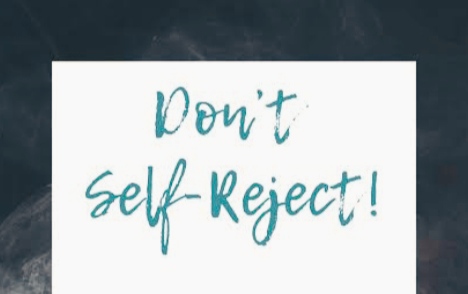
Self-rejection is a detrimental habit that many of us engage in without even realizing it. It involves dismissing our own abilities, talents, and worth, often before anyone else has even had a chance to. Self-rejection can hold us back from reaching our full potential and lead to missed opportunities in various aspects of life. Hence, it is crucial to recognize this destructive pattern and make a conscious effort that you do not self-reject yourself..
Often, self-rejection stems from fear and insecurity. We doubt our own capabilities and question whether we are good enough, smart enough, or talented enough. This negative self-assessment not only harms our self-esteem but also prevents us from seizing the opportunities available to us. By self-rejecting, we essentially close the door on our own potential success and growth.
Consequences of self-rejection
One major consequence of self-rejection is the missed chance to pursue our dreams and passions. How often have we talked ourselves out of applying for a job or pursuing a certain career path because we convinced ourselves we were not qualified or experienced enough? By self-rejecting, we deny ourselves the chance to learn, develop, and prove ourselves. We rob ourselves of the possibility to excel.
Furthermore, self-rejection can hinder personal relationships and connections. By continuously doubting our own worth and doubting that others could genuinely like or admire us, we distance ourselves from making meaningful connections. We may self-sabotage potential friendships or relationships due to the fear of rejection, failing to realize that our self-imposed rejections are the actual hindrance.
It is important to understand that self-rejection not only impacts our own lives but also affects those around us. When we refuse to believe in ourselves, we may fail to inspire, motivate, or positively influence others. By allowing self-doubt to take hold, we may unknowingly suppress our potential to be a source of inspiration for those who could benefit from our unique talents and experiences.
How to overcome this behaviour
Overcoming self-rejection is a journey that requires self-reflection and a change in mindset. First, we must recognize and challenge the negative thoughts and beliefs we hold about ourselves. It’s essential to understand that we are all capable of growth and learning, and our worth is not determined solely by external validation.
Secondly, surround yourself with positive influences who believe in your potential. Creating a supportive network of people who encourage you and remind you of your abilities and worth can be instrumental in combating self-rejection.
Moreover, set achievable goals and celebrate each milestone along the way. Recognizing and appreciating your own progress fosters a stronger sense of self-worth and confidence, combating self-rejection in the process.
Finally, don’t let past failures or setbacks define you. One setback does not determine your entire worth or capabilities. Accept that failure is part of the learning process and use it as an opportunity to grow stronger and wiser.
Therefore, self-rejection is a harmful habit that can restrain us from realizing our true potential. By recognizing it and actively working to overcome it, we open ourselves up to new opportunities, personal growth, and improved self-esteem. Remember, you should never self-reject yourself because you are more capable and worthy than you might think. Embrace the possibility and journey of self-improvement and watch your potential flourish.

Neat blog! Is your theme custom made or did you download it from somewhere? A theme like yours with a few simple tweeks would really make my blog jump out. Please let me know where you got your design. Thank you
Got it from wordpress. You can download it too